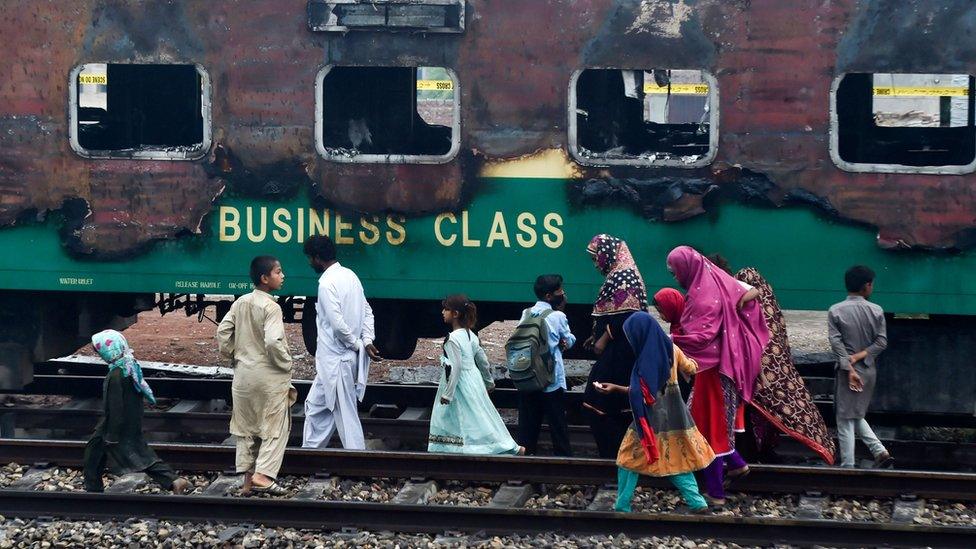Pakistan train accident: Family describes wedding tragedy as death toll rises
- Published
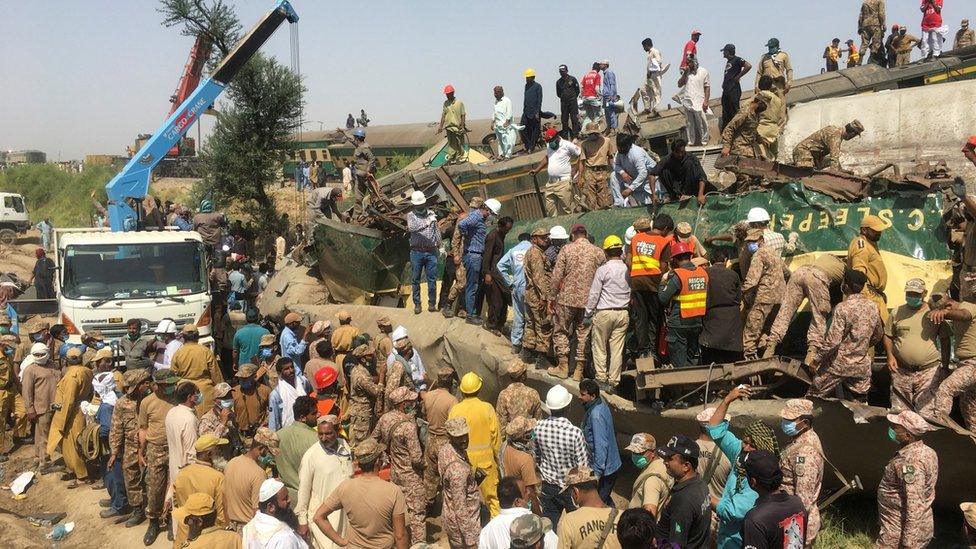
At least 62 people are now confirmed to have died in the crash
People have spoken of the moment they learned their loved ones had died in a major train crash in Pakistan.
One man told BBC Urdu his relatives were travelling for a family wedding that had already been postponed twice because of the Covid pandemic.
But when he heard a 22-year-old relative and his young son had died, they used the wedding arrangements for their funerals instead.
At least 62 people have been confirmed dead so far.
The Millat Express was travelling from Karachi when it derailed near the town of Ghotki, Sindh province, in the early hours of Monday.
The Sir Syed Express train travelling in the opposite direction, from Rawalpindi, then crashed into it.
It is not known what caused the Millat Express train to come off the tracks.
It took engineers a day-and-a-half to clear the mangled wreckage of the two trains from the site.
On Tuesday afternoon, after the carriages had been cleared, the country's main north-south railway line was reopened.
Paramilitary soldiers and official rescuers worked together on-site searching the overturned train carriages, helped by local residents.
Gul Mohammad, who works with the Edhi Foundation ambulance service, told Reuters news agency that he was one of many people helping to take injured passengers to the closest hospitals.
"We did whatever we could to help the passengers," he said. "We picked up dead bodies."
He added that the bodies were taken by tractor to hospitals in nearby towns because there were no roads near the crash site.

Sher Mohammad, a farmer who lives nearby and was watering his fields early in the morning, said he saw the crash happen at about 03:30 (22:30 GMT).
"After that, there was a lot of screaming and crying from people in pain," he said. "We all rushed there, along with villagers nearby. We saw a terrifying scene here. We brought water and picked up children. Passengers who were coming out of the train were mostly in agony, and we gave water to them."
Railway engineer Jahan Zeb, who worked through the night trying to help passengers in Ghotki, told AFP news agency that this was "the most colossal accident I have seen in about 10 years of service".
Prime Minister Imran Khan said on Monday that he was "shocked" by the accident and that he had ordered a "comprehensive investigation" into what happened.
Minister for Information Fawad Chaudhry said that the country's rail network had, for a long time, "been deprived of finances that should have been invested" in it.
Footage shows the aftermath of a collision between two trains in Pakistan.
Railway accidents are not uncommon in Pakistan, often caused by derailment and collisions at unmanned railway crossings.
Between 2013 and 2019, 150 people died in such incidents, according to local media reports. Data from Pakistan Railways shows there were 757 train accidents between 2012 and 2017 - an average of about 125 incidents a year.
The majority of train passengers in Pakistan are working class people who can't afford the quicker, but more expensive, bus journeys.
Carriages are often overcrowded and many of the trains are in poor condition.
Related topics
- Published7 June 2021
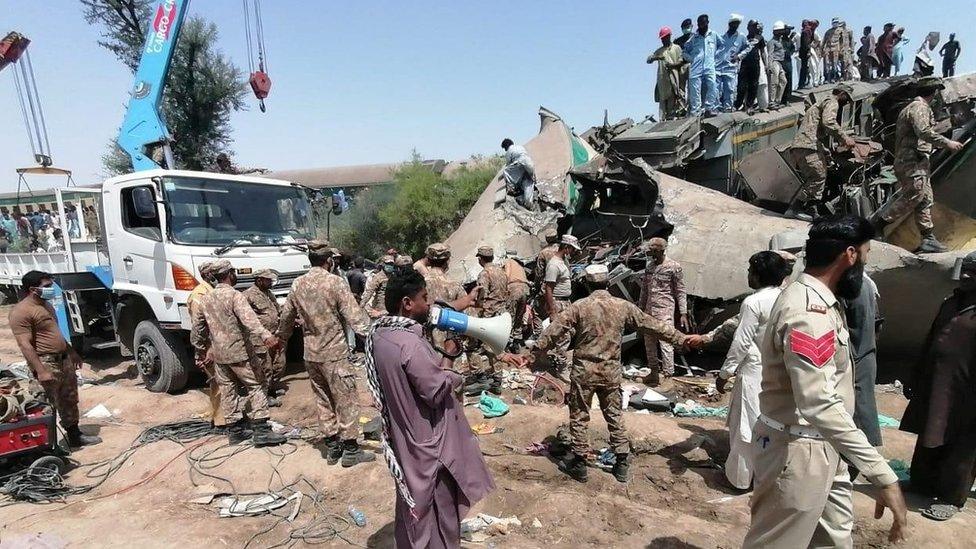
- Published3 July 2020
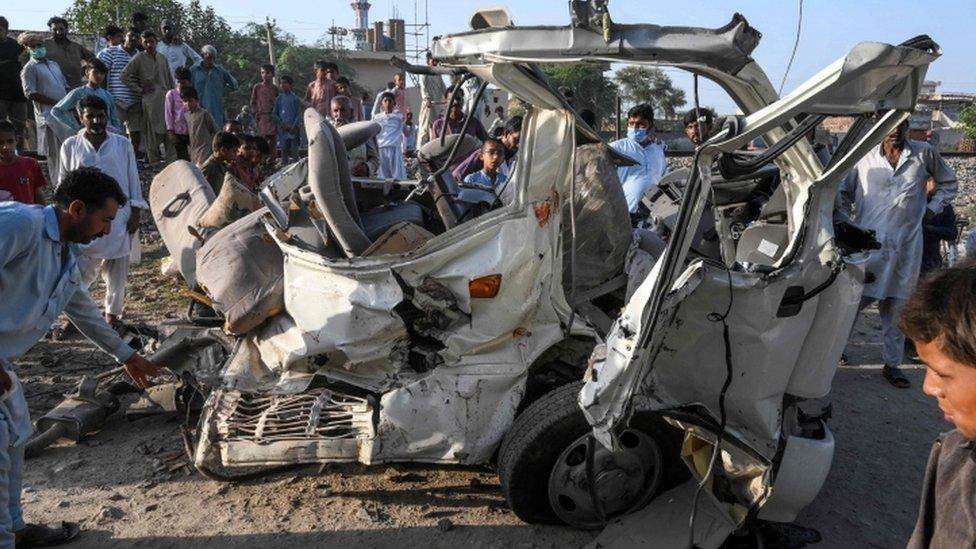
- Published1 November 2019
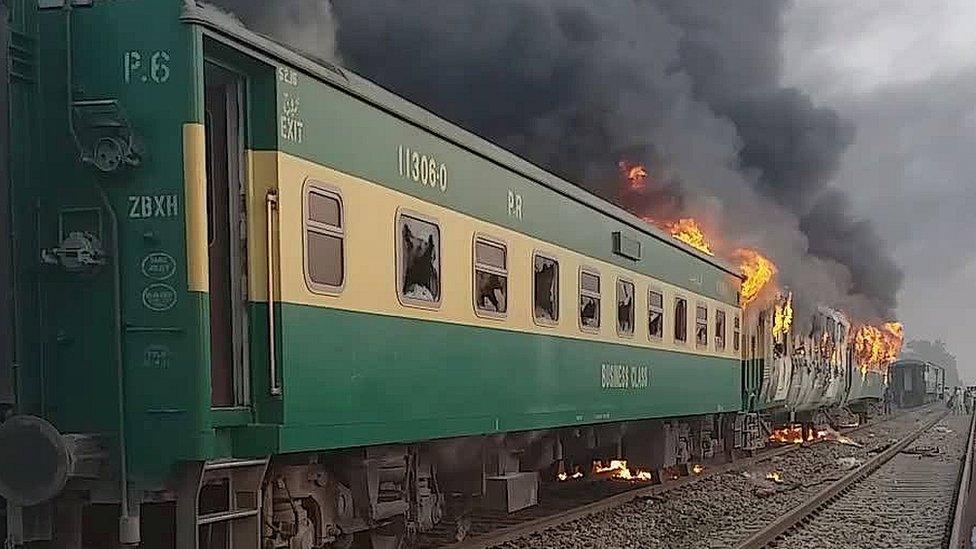
- Published1 November 2019
